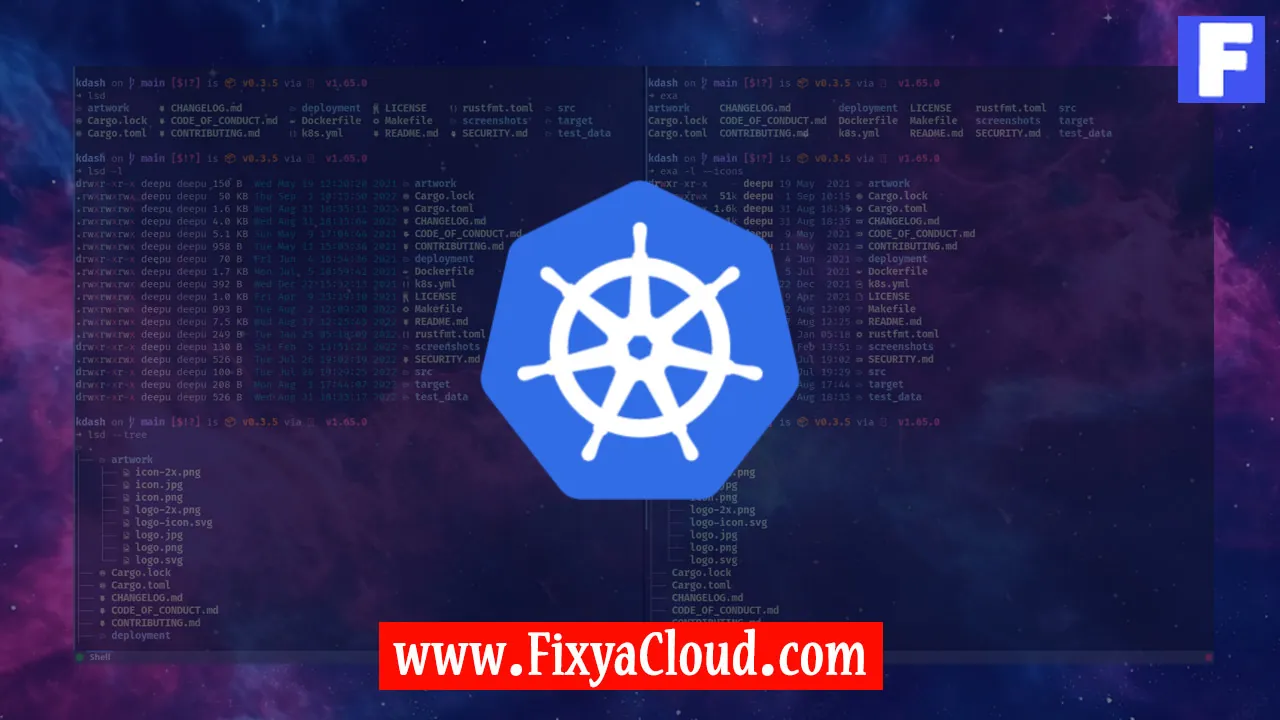Difference Between Kubernetes and Managed Kubernetes

In the realm of container orchestration and deployment, Kubernetes has emerged as a powerful tool for managing containerized applications. However, the landscape has evolved, giving rise to managed Kubernetes services that aim to simplify the deployment and management processes. In this article, we will delve into the distinctions between Kubernetes and Managed Kubernetes, exploring their features, use cases, and advantages.
- Understanding Kubernetes:
Kubernetes, often abbreviated as K8s, is an open-source container orchestration platform designed to automate the deployment, scaling, and management of containerized applications. It provides a robust framework for container orchestration, allowing developers to deploy applications seamlessly across clusters of machines.
Key Kubernetes Commands:
kubectl create: Create a resource.kubectl get: Display one or many resources.kubectl describe: Show detailed information about a resource.kubectl scale: Scale the number of replicas in a deployment.
- Managed Kubernetes Explained:
Managed Kubernetes, on the other hand, refers to Kubernetes clusters that are hosted, configured, and maintained by a cloud service provider. These services aim to simplify the operational complexities associated with Kubernetes, enabling users to focus more on developing and deploying applications rather than managing the infrastructure.
Managed Kubernetes Services:
- Google Kubernetes Engine (GKE)
- Amazon Elastic Kubernetes Service (EKS)
- Microsoft Azure Kubernetes Service (AKS)
- Key Differences:
Control and Customization:
- Kubernetes: Offers full control and customization, allowing users to configure and manage every aspect of the cluster.
- Managed Kubernetes: Provides a more streamlined experience, abstracting away many of the infrastructure details and offering simplified controls.
Maintenance and Updates:
- Kubernetes: Users are responsible for cluster maintenance, updates, and ensuring compatibility with the latest Kubernetes releases.
- Managed Kubernetes: Cloud providers handle maintenance tasks, including updates and patches, ensuring a more hassle-free experience.
- Use Cases:
When to Use Kubernetes:
- Ideal for organizations with specific infrastructure requirements.
- Suited for users who want complete control over their Kubernetes environment.
When to Use Managed Kubernetes:
- Recommended for organizations seeking a more hands-off approach to cluster management.
- Suitable for businesses focused on rapid application development and deployment.
- Step-by-Step Guide: Deploying a Sample App on Kubernetes and Managed Kubernetes:
Kubernetes:
- Set up a Kubernetes cluster using a tool like Minikube or on a cloud provider.
- Create Kubernetes manifests defining your application's deployment, service, and pods.
- Deploy the application using
kubectl apply -f <manifest-file.yaml>.
Managed Kubernetes (Using Google Kubernetes Engine - GKE):
Create a GKE cluster through the Google Cloud Console.
Use
kubectlto connect to the GKE cluster.Deploy your application using the same Kubernetes manifests as in the Kubernetes example.
Comparative Examples:
# Kubernetes Manifest Example
apiVersion: apps/v1
kind: Deployment
metadata:
name: sample-app
spec:
replicas: 3
selector:
matchLabels:
app: sample-app
template:
metadata:
labels:
app: sample-app
spec:
containers:
- name: sample-app
image: nginx:latest
ports:
- containerPort: 80
# Kubernetes Deployment Command
kubectl apply -f k8s-manifest.yaml
# GKE Cluster Creation Command
gcloud container clusters create my-cluster --num-nodes=3 --zone=us-central1-a
So, the choice between Kubernetes and Managed Kubernetes depends on the specific needs and preferences of an organization. While Kubernetes provides maximum control and flexibility, Managed Kubernetes services offer a more user-friendly experience, reducing the operational overhead.
Related Searches and Questions asked:
That's it for this topic, Hope this article is useful. Thanks for Visiting us.
